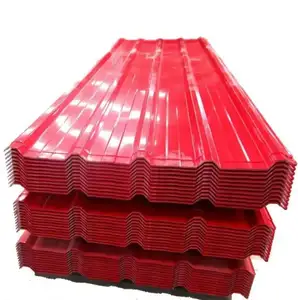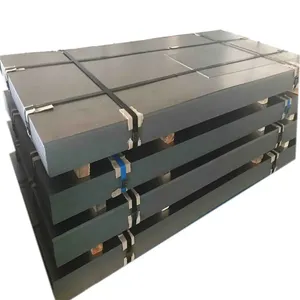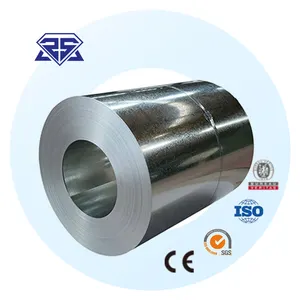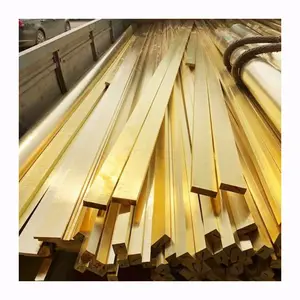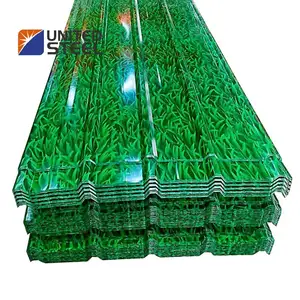Popular in your industry



































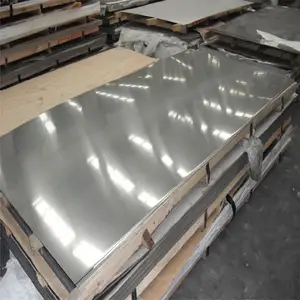



























Related Searches:








































































































































































Top categories
About 2mm 316 stainless steel sheet
Exploring 316 Stainless Steel Sheet
Composed chiefly of iron alloyed with a substantial chromium content and occasionally molybdenum or nickel, 316 Stainless Steel Sheet stands out for its exceptional resistance to corrosion. This quality renders it a prime selection for a multitude of industrial uses where enduring harsh conditions is crucial. Molybdenum's inclusion bolsters the alloy's resilience against corrosive substances, making it particularly well-suited for marine and coastal applications.
Superior to the 304 variant in combating corrosion, the 316 grade stainless steel sheet is the material of choice for sectors like pharmaceuticals, chemical processing, and food production, which demand material integrity in the face of chemical exposure and elevated temperatures. The alloy's makeup also lends itself to sanitary applications, such as in the food and beverage industry, where cleanliness is imperative.
The 316 Stainless Steel Sheet achieves its durability and corrosion resistance through a blend of elements in its composition. Chromium forms a protective oxide layer on the surface, thwarting corrosive agents from damaging the metal. Molybdenum contributes to the alloy's resistance to pitting and crevice corrosion, while nickel imparts an austenitic structure that enhances strength and malleability. Together, these elements ensure the sheet not only withstands corrosion but also upholds its structural integrity in extreme conditions.
Varieties of 316 Stainless Steel Sheet
Among the most adaptable offerings in the stainless steel sheet market, the '316' designation refers to the grade, which determines its composition and performance attributes. To accommodate diverse applications, several types of 316 stainless sheets are available:
-
316 Stainless Steel Sheet 2B: A prevalent choice for food processing and restaurant equipment, the '2B' surface has a matte finish that provides satisfactory resistance to moderately corrosive environments.
-
316 Stainless Steel Sheet NO.1: Sporting a bright finish conducive to cleanliness, this variant is also favored for food processing and kitchen equipment. The 'NO.1' designation indicates a surface finish that is generally less reflective than the 2B finish.
-
316L Stainless Steel Sheet: With a reduced carbon content compared to 316, this type offers enhanced resistance to intergranular corrosion, often used in more demanding chemical environments or in pharmaceutical equipment production.
-
316Ti Stainless Steel Sheet: The addition of titanium improves resistance to high-temperature conditions, making it suitable for uses such as exhaust manifolds where both corrosion resistance and structural integrity are required.
These variants serve a broad spectrum of industries, including construction, food processing, marine applications, and pharmaceutical manufacturing.
Selecting the Right 316 Stainless Steel Sheet
Choosing the appropriate 316 Stainless Steel Sheet involves a thorough evaluation of several factors to ensure it aligns with your business or application needs:
-
Grade: The stainless steel grade determines properties like strength, corrosion resistance, and workability. Opt for a grade such as 316 for unmatched corrosion resistance or 316L for similar advantages with superior formability.
-
Thickness: Sheet thickness influences both durability and workability. A more substantial sheet may offer robustness but could necessitate more powerful equipment. Balance the application's demands with your machinery's capabilities when selecting thickness.
-
Size: The sheet size should match your processing capabilities, whether you require standard dimensions or custom cuts. This also hinges on the intended use of the material.
-
Surface Finish: The finish affects the sheet's application, with polished finishes being essential for aesthetic or hygiene-sensitive uses, while matte finishes may be preferable for industrial settings where light reflection is not a concern.
-
Processing Service: Assess if additional processing services like punching, bending, or welding are needed post-purchase. Some suppliers may provide these services, potentially streamlining your operations.
Companies should also consider industry-specific regulations or customer requirements that may dictate material standards.
316 Stainless Steel Sheet on Alibaba.com
Alibaba.com is a global marketplace that connects businesses with an extensive array of 316 stainless steel sheets suitable for various commercial uses. The platform's vast network of suppliers ensures access to the right grade and specifications for your project, coupled with competitive wholesale prices. With over twenty years of experience in B2B transactions across more than 190 countries, Alibaba.com has become a trusted resource for businesses in search of quality materials.
The site's intuitive interface allows for easy navigation of options that fit your specific needs, such as size, processing service, technique, and standard. Alibaba.com's Trade Assurance service adds a layer of protection, securing your payments until delivery confirmation.
Alibaba.com demonstrates its commitment to the growth of small and medium-sized enterprises through comprehensive online trade solutions that facilitate international sourcing. By offering a selection of products from verified suppliers and tools for straightforward communication and order management, Alibaba.com enables businesses to procure 316 stainless steel sheets with confidence and efficiency.
Frequently Asked Questions about 316 Stainless Steel Sheet
What distinguishes 316 from 316L stainless steel sheets?
316 stainless steel is enriched with molybdenum, boosting its corrosion resistance and suitability for harsh environments compared to 316. The 316L variant has a lower carbon content, enhancing its weldability and preventing material sensitization.
How does molybdenum content influence 316 stainless steel properties?
Molybdenum elevates the material's resistance to corrosion and augments its performance in high-temperature settings. It is especially valuable in applications where durability and reliability are paramount, such as marine and chemical processing.
Is customization available for 316 stainless steel sheets?
Indeed, 316 stainless steel sheets can undergo various processing and customization services, including punching, decoiling, and welding, to meet the diverse requirements of different applications.
What considerations are important when selecting a 316 stainless steel sheet thickness?
In choosing the thickness for a 316 stainless steel sheet, it's important to weigh the application's strength requirements against the desired formability. Thicker sheets provide increased durability and resistance to deformation.
What are typical food industry applications for 316 stainless steel sheets?
The food industry frequently employs 316 stainless steel sheets for their superior corrosion resistance and hygienic properties, making them ideal for food processing equipment and facilities.
Does 316 stainless steel exhibit magnetic properties?
Although most 316 stainless steel grades are non-magnetic, certain grades may display magnetic characteristics. Selecting the appropriate grade for your application should take these properties into account.
How does the finish of a 316 stainless steel sheet affect its performance?
A 316 stainless steel sheet's finish can influence both its resistance to corrosion and visual appeal. For example, a polished finish might improve corrosion resistance while also affecting the material's visual aspect.
What should be considered when using 316 stainless steel sheets in medical devices?
For medical device applications, it is crucial that 316 stainless steel sheets meet stringent biocompatibility standards and are free from contaminants that could compromise device sterility or effectiveness.
What benefits does molybdenum provide to 316 stainless steel?
Molybdenum's presence in 316 stainless steel significantly enhances its corrosion resistance, particularly in environments containing chlorides or other corrosive substances.
Are 316 stainless steel sheets suitable for machining?
Yes, 316 stainless steel sheets are well-suited for machining and can be tailored through cutting, drilling, and tapping to fulfill the needs of various industrial applications.
What standards are met by 316 stainless steel sheets?
316 stainless steel sheets typically adhere to international standards such as ASTM, JIS, EN, GB, and DIN, ensuring quality and suitability for specific applications.
